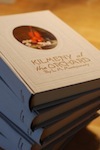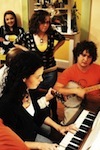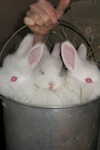 I twisted around in my seat to watch our newborn daughter, cuddled with her blankets and sleeping through the ride. I wanted to say that it would all grow back. That I, too, would one day take a bluebonnet picture of my own daughter shaded by live oak trees. That the trees surely dropped seeds and those seeds would grow into seedlings, saplings, and young trees. But we passed in silence. The Loblolly pines would recuperate, but live oaks grow too slowly. Hundreds of years would have to pass. The land cannot return in time for my daughter.
I twisted around in my seat to watch our newborn daughter, cuddled with her blankets and sleeping through the ride. I wanted to say that it would all grow back. That I, too, would one day take a bluebonnet picture of my own daughter shaded by live oak trees. That the trees surely dropped seeds and those seeds would grow into seedlings, saplings, and young trees. But we passed in silence. The Loblolly pines would recuperate, but live oaks grow too slowly. Hundreds of years would have to pass. The land cannot return in time for my daughter. I twisted around in my seat to watch our newborn daughter, cuddled with her blankets and sleeping through the ride. I wanted to say that it would all grow back. That I, too, would one day take a bluebonnet picture of my own daughter shaded by live oak trees. That the trees surely dropped seeds and those seeds would grow into seedlings, saplings, and young trees. But we passed in silence. The Loblolly pines would recuperate, but live oaks grow too slowly. Hundreds of years would have to pass. The land cannot return in time for my daughter.
I twisted around in my seat to watch our newborn daughter, cuddled with her blankets and sleeping through the ride. I wanted to say that it would all grow back. That I, too, would one day take a bluebonnet picture of my own daughter shaded by live oak trees. That the trees surely dropped seeds and those seeds would grow into seedlings, saplings, and young trees. But we passed in silence. The Loblolly pines would recuperate, but live oaks grow too slowly. Hundreds of years would have to pass. The land cannot return in time for my daughter.
































